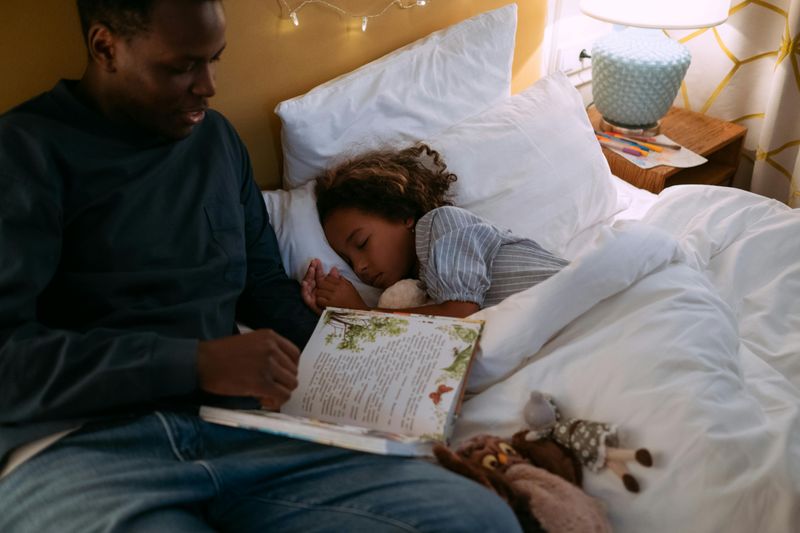Remember when children were seen and not heard? The 1960s marked a distinctive era in parenting, with clear expectations and consistent discipline that shaped well-mannered kids. Back then, family rules weren’t suggestions – they were non-negotiable standards that built character and respect. Looking back at these old-school approaches reveals valuable lessons we might want to bring back today.
1. “Mind Your Elders” Was Non-Negotiable

The cornerstone of 1960s childhood was showing absolute respect to adults. Children addressed grown-ups as “Mr.” or “Mrs.” and stood when adults entered a room. No eye-rolling or muttering under your breath allowed!
Parents weren’t concerned about being their child’s friend – they were authority figures first. When Dad or Mom spoke, kids listened without debate or negotiation. Neighbors could correct neighborhood children without fear of angry parents showing up at their door later.
This hierarchy created clear boundaries that children understood and generally accepted. The result? Kids who grew up understanding respect wasn’t optional but a fundamental part of human interaction.
2. Dinner Time Was Family Time

Families gathered around the dining table every evening at the same time – no exceptions. The TV stayed off, and everyone took their assigned seats for a home-cooked meal. This daily ritual wasn’t just about eating; it was a classroom for manners and conversation skills.
Children learned to wait until everyone was served before eating. They practiced saying “please pass the potatoes” instead of reaching across the table. Elbows off, napkins in laps, and absolutely no leaving until excused!
These consistent family meals created stronger bonds and better communication. Many adults today credit these nightly gatherings with teaching them how to engage in meaningful conversation.
3. “Please” and “Thank You” Were Mandatory

Magic words weren’t optional in 1960s households – they were expected at all times. Parents would stand silently waiting after giving a child something, their raised eyebrows the universal signal for “What do you say?”
Forgetting these courtesies often meant losing privileges or having items taken back until proper gratitude was expressed. Children thanked adults for meals, rides, and even discipline. “Thank you for teaching me right from wrong” might sound strange today, but it reflected the appreciation culture of the era.
This consistent expectation created adults who automatically express gratitude and make requests politely. The habit became so ingrained that many Baby Boomers still can’t take a salt shaker without saying “please.”
4. Chores Were a Given

Saturday mornings weren’t for cartoons until beds were made and rooms were clean. Children as young as five had assigned responsibilities that contributed to family functioning. Allowances weren’t handouts but payments for jobs well done.
Boys mowed lawns and took out trash. Girls helped with dishes and dusting. While the gender divisions seem outdated now, the principle wasn’t – everyone pitched in because families worked as teams. Kids didn’t negotiate or complain about their duties; they simply completed them.
This early responsibility fostered work ethic and consideration for shared spaces that many parents today struggle to instill. Children understood that privileges came after responsibilities were met.
5. Bedtimes Were Strictly Enforced

“But Mom, just five more minutes!” fell on deaf ears in 1960s homes. When the clock struck eight, children headed upstairs without debate. Parents didn’t worry about being unpopular for enforcing early bedtimes – they prioritized structure over friendship.
The bedtime routine was predictable: bath, pajamas, teeth brushing, and maybe a short story. No endless negotiations for water or extra bathroom trips. This consistency taught children that some rules simply weren’t flexible.
Early bedtimes weren’t just about parental sanity (though that was a bonus). They established healthy sleep patterns and reinforced parental authority. Kids learned that certain boundaries weren’t meant to be pushed, creating security in predictability.
6. Phone Etiquette Was Taught Early

Long before caller ID, children answered the family’s single telephone with “Smith residence, Johnny speaking.” They were trained to take complete messages, writing down names, numbers, and details. Interrupting adults on the phone was considered deeply disrespectful. Time limits were strict – no teenager monopolized the family line for hours.
Calls after 9 PM were emergencies only, and children never answered after bedtime. Speaking clearly and politely on the phone was considered a reflection of family values. These lessons created awareness that communication tools were shared resources requiring courtesy.
While today’s kids text without thinking, 1960s children learned that how you speak – even when unseen – matters tremendously.
7. Outdoor Play Was the Norm

“Go outside and play” wasn’t a suggestion but a daily directive. Children vanished into neighborhoods after school, creating games with whatever was available – sticks became swords, empty lots transformed into baseball fields. Parents expected kids home when street lights came on, not a minute later.
Skinned knees weren’t emergencies but badges of adventure. Children settled their own disputes without adult intervention, learning valuable negotiation skills. Weather rarely kept kids indoors – unless lightning threatened, outdoor play continued year-round.
This freedom fostered independence, creativity, and problem-solving. Kids learned to entertain themselves without screens or constant supervision. They developed spatial awareness, risk assessment, and social bonds through unstructured play that many of today’s overscheduled children rarely experience.
8. School Was Taken Seriously

Report card day could make or break your weekend plans in the 1960s. Parents viewed education as a privilege, not an entitlement, and expected children to give their best effort. Teachers were presumed right in disputes, and parents rarely questioned their authority or methods.
Homework came before play, every single day. Parents checked assignments but didn’t complete them for struggling children. Poor grades meant extra study time, not excuses about teaching styles or learning differences.
This reverence for education extended to behavior at school. Getting sent to the principal’s office meant double trouble at home. The partnership between parents and educators created a consistent message: learning matters, and disrespect for the educational process wasn’t tolerated.
9. Family Reputation Mattered

“Don’t embarrass the family” wasn’t just a throwaway line – it was a guiding principle. Children understood their behavior reflected directly on their parents and family name. Misbehaving at church or in stores brought swift consequences because public perception truly mattered.
Neighbors noticed everything and weren’t shy about reporting bad behavior. Kids who acted out at friends’ houses weren’t invited back, and parents took these social consequences seriously. The community helped enforce standards through collective expectations.
This concern for reputation wasn’t just about appearances – it taught children that their actions affected others. Family pride created a powerful motivation to behave well even when parents weren’t watching. The desire to uphold family honor often prevented poor choices.
10. No Complaining Allowed

“Life isn’t fair” was a common parental response to whining in the 1960s. Children learned quickly that complaining about chores, homework, or siblings fell on unsympathetic ears. Parents valued resilience over comfort and expected kids to handle minor discomforts without constant commentary. Phrases like “I’m bored” were practically forbidden.
Children who uttered them often found themselves assigned extra chores or sent outside regardless of weather. Self-entertainment was considered a basic skill, not an optional talent. This no-nonsense approach to complaints built remarkable resilience. Kids learned to address problems rather than just talk about them.
The expectation to handle difficulties without constant validation created adults who faced challenges head-on instead of seeking sympathy first.
11. Politeness Extended to Strangers

Children greeted the mailman by name and asked Mrs. Johnson how her garden was growing. Acknowledging adults wasn’t optional – it was expected courtesy that reflected family values. Shy children weren’t excused from basic greetings; they were gently coached until social interaction became natural. Store clerks received “yes, ma’am” and “no, sir” responses.
Children held doors, offered seats to adults on buses, and never interrupted adult conversations. These weren’t extraordinary behaviors but everyday expectations. This training created awareness that everyone deserved respect, not just family members or authority figures.
Children learned to navigate social interactions confidently because they practiced regularly. The habit of acknowledging others’ presence combated the self-absorption that often characterizes modern childhood.
12. Respect for Rules Was Instilled Early

Rules weren’t suggestions in 1960s homes – they were firm boundaries with real consequences. Children understood that “because I said so” was a complete and final explanation. Parents didn’t fear damaged self-esteem from enforcing household standards; they worried more about raising undisciplined adults.
Consequences came swiftly and consistently. Grounding meant actual confinement to your room, not texting friends while watching TV. Privileges revoked stayed revoked, without negotiation or early release for good behavior.
The predictability of consequences created security rather than resentment. Kids learned that boundaries existed for reasons, even if they didn’t always understand or agree with them.

Comments
Loading…